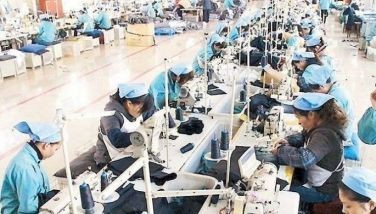The next level
The local movers and shakers of our BPO industry have been trying to keep a stiff upper lip about the dangers posed by Artificial Intelligence (AI) to their survival. Now and then, they will slip and express concern on their ability to move the local industry to the next level. The principal problem is the increasing difficulty of recruiting qualified staff to handle more demanding requirements beyond answering a phone call.
The morning briefing email I received from The New York Times last Wednesday made it clear how fast the industry is moving to the next level. The report written by Alex Travelli, who covers economics and business for the NYT in India, talks of a feverish hiring spree by US companies for Indian professionals to perform advanced tasks in about 1,800 overseas office parks in India. Soon they expect to employ two million Indians.
No longer are “sweaty youngsters piling into rooms in the middle of the night to help American customers rebook their flights or learn whether warranties had expired… Now the roles are more advanced, and the people holding them often have graduate degrees. Workers are analyzing medical scans, writing marketing pitches, balancing budgets and designing state-of-the-art microchips — the kind of work that used to put Americans in the top tax brackets.
“It’s not just happening here (India). Japanese and British firms have set up offices in places like Mexico and Poland. But most of the multinationals are American, and most of these new centers are in India… Indian workers are doing the kind of jobs that American workers envy – for American companies…
“All kinds of companies are converging on six English-speaking cities in India. They include huge firms like Cisco and Target, which has a Bengaluru campus roughly the size of its Minneapolis headquarters. Bank of America is in Chennai. Hundreds of smaller companies have rushed in elsewhere, too. A third of the companies in the Fortune 500 have centers like these across the country, according to the American Chamber of Commerce in India.
“Workers there are managing publicity for new cell phone companies, developing apps, writing programs to detect fraud and, of course, hiring more employees for the same centers. The employees are ambitious, and they want to climb the ranks at American-based companies. They devise business plans and make decisions that affect operations around the world.”
No more call centers with barely literate agents who needed to be trained intensively before they could be fielded to handle elephones for clients of our BPO industry. Interestingly, BPO industry leaders here told me that they are not afraid AI will render their services obsolete because AI helps them enhance the services they provide. That’s probably true for now but for how long?
This NYT report is telling us that we may lose this one important leg of our economy because we do not have the top caliber labor force required to reach the next level. They are now talking about PhDs and not from the diploma mills we have here. They need engineers and trained medical staff to analyze x-rays, CT scans and other diagnostic tests. They need management experts providing business strategies that companies like McKinsey and Bain and Co. currently offer.
This new level is working for India because, as the NYT report puts it, “America is reducing immigration, and its working-age population is shrinking. It’s harder than ever for companies to hire skilled workers. But the talent pool is nearly bottomless in India, which churns out roughly 10 times as many engineering degrees as the United States every year.”
Get that – 10 times as many engineering graduates as the US. I don’t think they need lawyers or politicians, so we are stuck with these unproductive drags on our economy. We don’t have enough engineering graduates and many of the good doctors and nurses go abroad. This only shows that our educational system has a lot to catch up on before we can even dream of being competitive in the brave new world.
Almost quietly, American firms are pouring into India to hire these talents. Trump’s focus on tariffs doesn’t “affect services or offshoring, the practice of hiring workers overseas. Visa restrictions are equally irrelevant. The roles at these new centers are not for immigrants. They’re for people who want to stay in India and work for American companies.”
Maybe Trump won’t notice, the NYT briefing observed. “These high-wage, education-intensive positions aren’t the manufacturing jobs he promised to bring back.”
Then again, who knows… Trump may notice and retaliate against American companies hiring service workers abroad. This could affect our BPOs.
Since most of the bigger BPO companies here are owned by Indians, maybe they can throw some business our way. But we must prove to the world that we have more to offer than just a pool of English-speaking talent, especially since English proficiency here is declining rapidly.
Local BPO executives say the country has to take on high-value outsourcing jobs in research and analytics and turn the headwinds from AI into an opportunity. The key to staying relevant and ahead of the competition, they said, is to ensure workers are trained in areas like data analytics, machine learning and data mining.
Given that we do not really have a manufacturing sector capable of generating significant export dollars, our agricultural sector is in decline and we are increasingly dependent on imports for food and other essentials, we must make sure the local BPO sector survives.
We have to encourage our youth to stop aspiring to be lawyers and bureaucrats and instead focus on engineering, math and the other sciences which are in high demand in our increasingly technical world.
The Indians are moving into the next level and we should too. But we can’t with our current PISA scores. DepEd Secretary Sonny Angara is still the man of the hour.
Boo Chanco’s email address is bchanco@gmail.com. Follow him on X @boochanco
- Latest
- Trending

























